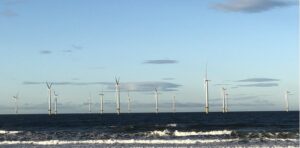Conference of the Parties (COP)
Reducing carbon emissions
Switch today
Run an energy comparison and switch to the best deals for Carbon energy saving
Guaranteed good advice to all our business customers
For business energy, electricity, gas, water and telecom advice
Call us on 01256643634 – South Office & 01642888814 – North Office to get a quote.
Guaranteed good quotes to all our business customers
Conference of the Parties (COP)
Reducing Carbon Emissions Quote Form
Run a energy quote and switch to the best deals
Please complete the following quote form to allow Energy4 to provide a quote
Get In Touch
Opening Hours: 8:00 – 17:00 Mon to Saturday
Call Energy4 Today For A Quote
01256643634 – South Office
01642888814 – North Office
Email: contact@energy4.co.uk
Contract Form: Contact Energy4 today – click here
Please provide the best date and time of day that we should contact you.
By submitting your details you agree to Energy4 T&C’s and Privacy Policy
COP climate agreements
COP28 Agreement Signals “Beginning of the End” of the Fossil Fuel Era | UNFCCC
COP29
COP29 is the 29th session of the United Nations Climate Change Conference. It’s taking place in Baku, Azerbaijan from November 11 to November 22, 2024. This summit brings together world leaders, climate scientists, and various stakeholders to discuss and implement measures to combat climate change.
Key priorities for COP29 include:
Securing climate finance: Ensuring that countries have the resources to take stronger climate action.
Reducing greenhouse gas emissions: Setting ambitious targets to cut emissions and transition away from fossil fuels.
Building resilience: Helping communities adapt to the impacts of climate change.
National climate plans (NDCs): Developing and implementing bolder, fully implementable climate strategies.
The conference aims to keep global temperature rise below 1.5 degrees Celsius and achieve net-zero emissions by 2050.
It’s a crucial moment for global climate action, and decisions made here will shape our future climate. Are you interested in any specific aspect of COP29?
About COP 29 | UNFCCC
Carbon energy saving
Carbon Energy Savings refer to the reduction in carbon dioxide (CO₂) emissions achieved through energy efficiency and conservation measures. Here’s a breakdown of how it works:
Energy Efficiency: By using energy more efficiently, we can reduce the amount of energy needed to perform the same tasks. This means burning fewer fossil fuels, which in turn reduces CO₂ emissions.
Renewable Energy: Shifting from fossil fuels to renewable energy sources like wind, solar, and hydro reduces the carbon footprint since these sources emit little to no CO₂.
Carbon Capture and Storage (CCS): Technologies that capture CO₂ emissions from sources like power plants and industrial processes, and then store them underground or use them in other applications, help reduce the amount of CO₂ released into the atmosphere.
Behavioral Changes: Simple changes in behavior, like turning off lights when not in use, using public transportation, and reducing waste, can collectively make a significant impact on carbon emissions.
The goal is to achieve net-zero emissions, where the amount of carbon emitted into the atmosphere is balanced by the amount removed. This balance is crucial for mitigating climate change and its impacts.
Reducing carbon emissions and saving energy can make a big difference for both the environment and your energy bills.
Here are some effective tips:
Energy Efficiency: Upgrade to energy-efficient appliances, use LED lighting, and insulate homes and buildings to reduce energy consumption
Renewable Energy: Switch to renewable energy sources like solar, wind, and hydroelectric power. Installing solar panels or subscribing to green energy plans can make a big difference
Transportation: Use public transportation, carpool, bike, or walk whenever possible. Opt for electric or hybrid vehicles to reduce reliance on fossil fuels
Sustainable Practices: Reduce, reuse, and recycle to minimize waste. Support sustainable products and companies that prioritize environmental responsibility
Carbon Offsetting: Invest in carbon offset programs that fund projects aimed at reducing greenhouse gases, such as reforestation or renewable energy projects
Behavioral Changes: Simple actions like turning off lights when not in use, reducing water usage, and minimizing air travel can collectively make a significant impact
Advocacy and Education: Advocate for policies that promote sustainability and educate others about the importance of reducing carbon emissions.
Switch To Low Carbon Energy: Energy4 collects data on all suppliers to provide low carbon emission utilities to clients. Contact Energy4 today.
Business Property upgrades
Insulation: Properly insulating your walls, roof, and floors can significantly reduce heat loss, making your home more energy-efficient.
Heating Controls: Upgrading to smart heating controls ensures you only use heating when necessary.
Renewable Heating Systems: Consider switching to heat pumps, which are more efficient and have a lower carbon footprint than traditional gas boilers.
Daily Habits
Energy-Efficient Appliances: Use appliances with high energy efficiency ratings and opt for LED lighting.
Eco Modes: Utilize eco modes on appliances like washing machines and dishwashers to reduce energy consumption1.
Air Drying: Air dry clothes instead of using a tumble dryer.
Low Carbon Travel
Electric Vehicles: Switching to electric vehicles can greatly reduce your carbon footprint.
Public Transport and Cycling: Whenever possible, use public transport, cycle, or walk instead of driving2.
Behavioural Changes
Reduce, Reuse, Recycle: Minimizing waste and recycling can help lower carbon emissions.
Conscious Consumption: Be mindful of your energy use, turning off lights and appliances when not in use1.
Implementing these changes can help you contribute to a more sustainable future.
Did you know that
Companies which spend fortunes on business Electricity are those companies which need to make use of Electricity as a resource. If you own a takeaway shop or work in a warehouse or factory shop, then the chances are incredibly high that you make use of way too much business gas than is necessary.
Our agreements allow us to negotiate on the client’s behalf with UK Electricity suppliers, to ensure that they are paying a competitive rate for their Electricity supply. We monitor the Electricity market for the clients, allowing the client to focus on their business and what you do best.
The wholesale Electricity market has become increasingly volatile over the last years. Accordingly, securing your organisation’s’ electricity contract can have significant cost benefits over the contractual term.
At Energy4 we review the market daily to purchase Electricity for our clients when the prices are at a lower rate. Our access to all Electricity Suppliers means we buy at live prices and offer you the best rate possible on the market.
We have highly qualified business advisors on standby to deal with your every question and query. We will not let you down and promise to provide you with only the best service guaranteed.
Energy4 can do all the work for you by doing all the intensive research while you sit back and ask us for our trouble-free quote. We want nothing in return except for the knowledge that you are saving money.
Energy4 are not only able to make you aware of savings, but we can help you save time and money by providing you with a trouble-free quotation.
Do you know who the Big 6 are?
- Scottish Power
- E.on (also known as Powergen)
- EDF (incorporating London Energy, SWEB and Seeboard)
- Npower (also known as RWE)
- British Gas (Incorporating Scottish Gas, Electricity for Business, Bizzenergy, Enron and Electricity Direct)
- Scottish & Southern (also know as SSE, incorporating Southern Electric, Scottish Hydro Electric, SWALEC, Atlantic Electric & Gas.)
The following information will help you contact the right organisation in the event of a power cut in your area:
| Area Company | Emergency No | General Enquiries No |
|---|---|---|
| North Scotland Scottish & Southern Energy | 0800 300 999 | 0845 071 3954 |
| South Scotland Scottish Power | 0845 272 7999 | 0845 273 4444 |
| North East England Northern Powergrid | 0800 668 877 | 0845 070 7172 |
| North West Electricity North West Ltd | 0800 195 4141 | 0800 048 1820 |
| Yorkshire Northern Powergrid | 0800 375 675 | 0800 0113332 |
| East Midlands Western Power Distribution | 0800 056 8090 | 0800 096 3080 |
| West Midlands Western Power Distribution | 0800 328 1111 | 0800 096 3080 |
| Eastern England UK Power Networks | 0800 783 8838 | 0845 601 4516 |
| South Wales Western Power Distribution | 0800 052 0400 | 0845 601 3341 |
| Southern England Scottish & Southern Energy | 0800 072 7282 | 0845 071 3953 |
| London UK Power Networks | 0800 028 0247 | 0845 601 4516 |
| South East England UK Power Networks | 0800 783 8866 | 0845 601 4516 |
| North Wales Merseyside and Cheshire Scottish Power | 0845 272 2424 | 0845 273 4444 |





